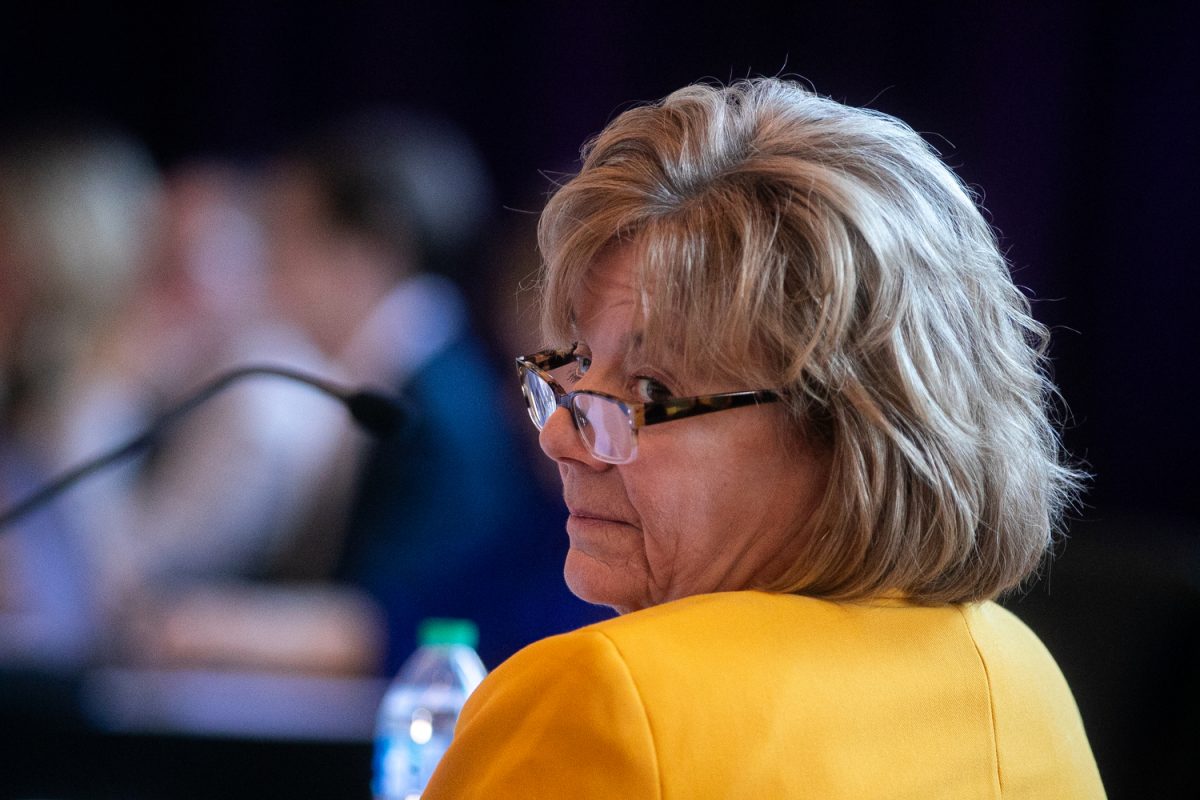In an effort to improve education in elementary schools, officials discussed ways to better facilitate student learning, stressing variability as a teaching measure to help a multitude of students.
University of Iowa psychology professors and local School District members met at the Iowa City Public Library on Monday night to exchange ideas with community members on student learning strategies.
UI Associate Professor of psychology Bob McMurray said the goal of the discussion was to encourage participants to think of learning differently.
“Our goals are to introduce them to a couple of principles of learning,” he said. “The small principle is that we want teachers to get some principles of learning that they can take back to their classrooms. The bigger picture is to get people to think a little bit differently … Everybody’s talking about how to change education, and mostly what they’re talking about is how to change what we teach, and they’re not really thinking about how kids learn.”
McMurray collaborated with UI Associate Professor of psychology Eliot Hazeltine and two of the founders of the Foundations in Learning, Dr. Jerry Zimmermann and Dr. Carolyn Brown, to discover how individuals learn, and discovered how students learn is very counterintuitive.
Hazeltine expanded upon the difference that “implicit” and “explicit” learning have upon obtaining a knowledge and skill. He described explicit learning as a concept that can be explained to someone out loud while implicit learning is something an individual gains through association and cannot explain.
McMurray expanded upon this concept, noting that in their research they found that children learn best through variability because it cancels out the outside factors adults may not even think about.
“The principle is targeted variability — its not just ‘vary everything.’ ” McMurray said. “Some people say, ‘Oh, we should just vary more things,’ but that is going to kill kids — you can’t do that. It’s how you vary the irrelevant things, or the things that you think kids are paying attention to but shouldn’t be. So you have to kind of get inside their heads to figure that out.”
Pam Ehly, the Iowa City School District director of curriculum, agreed with McMurray’s research principles.
“Unless you provide them an opportunity to discriminate with what the variability does, you don’t get the full package,” Ehly said in the discussion. “Often times I think in education, teachers are so organized and systematic that they get overgeneralized, and so the discriminant gets left out and so kids never really get the other part of it.”
Coralville resident Suzanne Sinift attended the discussion to gain a broader insight on child learning because one of her children has a 4-year-old child experiencing learning challenges.
“I think the idea of targeted variation was excellent,” the 67-year-old said. “Just giving more variety so the learner can make the recognition themselves is my best take away.”
Officials hope to generate future discussion and in time, integrate these strategies into the school district.
Zimmermann said he thinks by bringing the science of learning and the science of teaching together in the community, student learning will be better facilitated in the future.
“We have the science of learning in a powerful way here and so we want to see if the science behind learning can benefit the classroom,” Zimmerman said. “If we can continue the dialogue and they see the application then I think we can start testing some of these ideas with real teachers in real schools. Our goal is to take the resources of the university to the community.”






